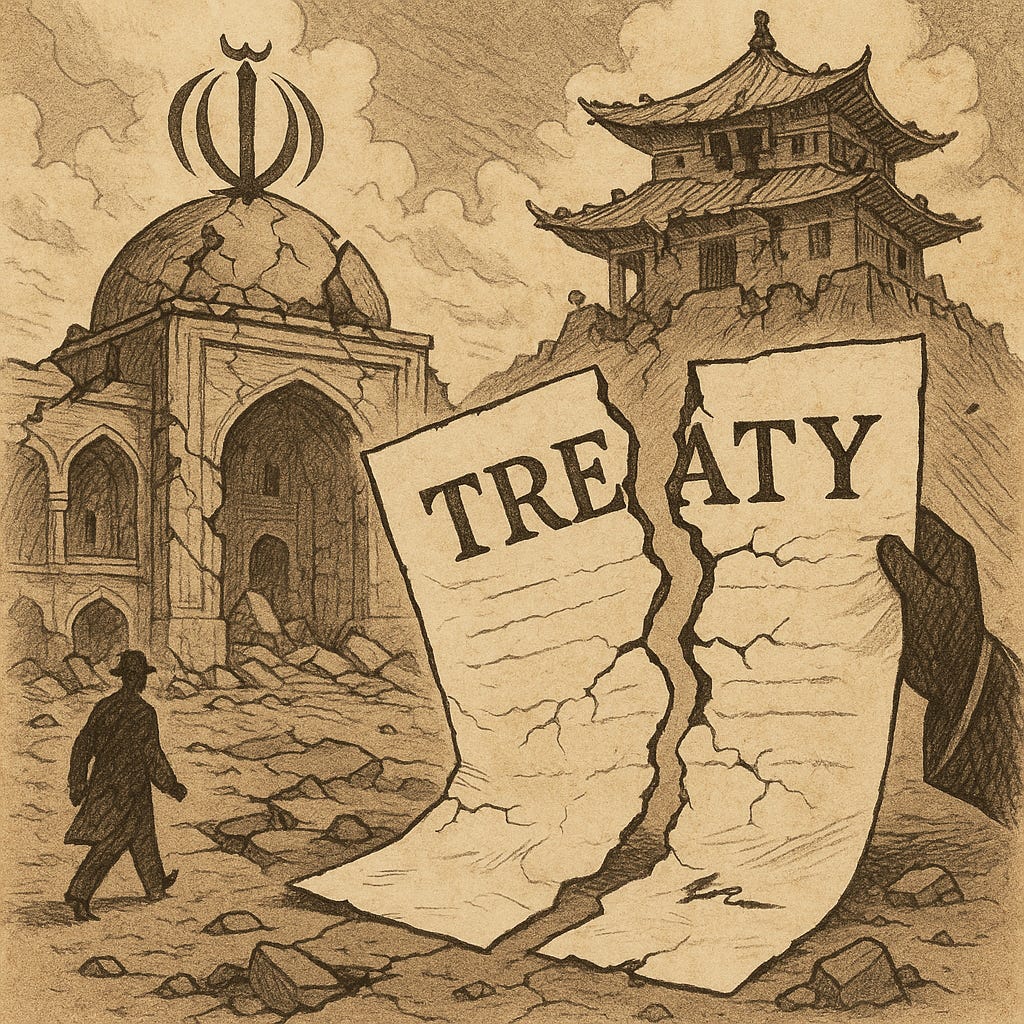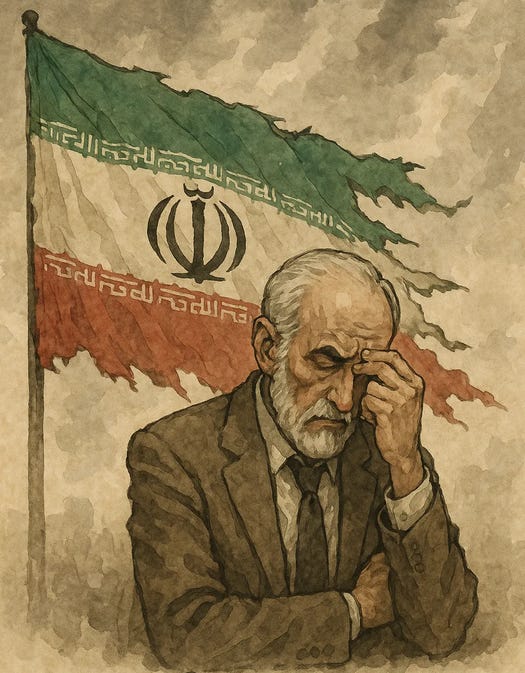Geopol: Iran Will Fall and China Won’t Catch Her
Iran Will Fall, China Won’t (Can’t?) Catch Her
Authored for GoldFix, by Mavs and VBL
This is a 2-part analysis. In the first part, we do a deep dive into the Chinese view on how committed they are to Iran from a long-term, structural, and cultural point of view. The second part (later this week) will relate to how these can manifest in markets.
Contents (2200 words)
- Bottom Line/ Introduction
- Too Modern for Its Politics
- The Shah’s Ghost
- The Worst of Both Worlds
- China Won’t Catch this Falling Ally
Bottom Line/ Introduction:
Iran is not a viable partner for China (or anyone for that matter) for long-term strategic investment, as any major change to its political order is likely to be disruptive and possibly violent.
Iran’s current regime is fundamentally unstable and disconnected from the country’s social and economic realities. Iran faces deep internal dissent, a paralyzed hybrid political system, and a lack of strategic coherence. Its persistent anti-American stance is seen as outdated and unconvincing, especially to its educated population.
The regime’s structure—a mix of theocracy and elected government—creates paralysis rather than strength, drawing comparisons to the collapsing Qing Dynasty in early 20th-century China. China knows this and to the extent they can, will distance themselves form Iran if things deteriorate further there.
Iran's situation is profoundly problematic. Frankly speaking, at this stage, any cooperation agreement reached with Iran resembles signing a treaty with the Qing Dynasty on the eve of the 1911 Revolution.
First, knowing how China learns the lessons of its own history says much about how it perceives Iran’s path. Second, knowing the inherent contradciton in Iran’s hybridized attempt to have things “both ways” shows why their current sitauton will fail. Putting these two concepts together serves to predict how China will behave when Iran’s regime actually falls
2. The Last Fragile Regime in the Middle East
Iran stands out among its neighbors as the only state likely to face severe political upheaval in the near future. While Persia as a nation will persist, the Islamic Republic appears increasingly unsustainable. It exhibits signs of deep dysfunction—incapable of protecting key figures, supporting allies, or maintaining coherent foreign policy. This instability stems not from poverty and systemic incoherence.
Among the Middle Eastern nations, Iran is the only country likely to experience disruptive upheaval in the foreseeable future. Persia, the ancient civilization, will endure as a nation. However, the longevity of the Islamic Republic of Iran is highly uncertain. In recent years, Iran has exhibited glaring inconsistencies – vacillating policies, bluster masking weakness, absurd flag-raising ceremonies – demonstrating it is thoroughly penetrated. The extent of this infiltration borders on state dysfunction:
Domestically: It cannot protect its own state guests or top scientists.
Internationally: It cannot reliably support its allies or defend its sphere of influence. No rational nation should view such a regime as a viable partner. A regime can be poor or weak, but it absolutely cannot be dysfunctional. A dysfunctional state is like a paralyzed patient – devoid of value in international relations.
3. A Society Too Modern for Its Politics
Widespread dissent in Iran is rooted in a mismatch between the country’s social development and its rigid ideological regime. Unlike regimes in Syria, Haiti, or Saudi Arabia, Iran cannot justify its anti-American posture to its own population. Its educated middle class sees no rational reason for continued confrontation. Unlike China’s predictable geopolitical clash with the West, Iran’s antagonism is (unnecessary and) self-defeating.





